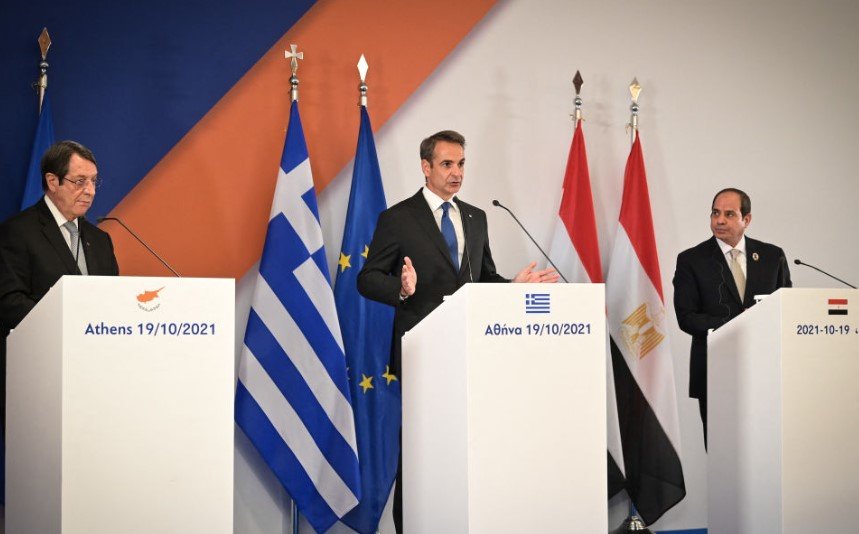Foreign Minister Badr Abdelatty hails Cyprus’ ongoing support for Egypt in European Union institutions and eyes stronger collaboration ahead of 2026.
Egypt’s top diplomat didn’t mince words — he’s counting on Cyprus. In a meeting with his Cypriot counterpart Konstantinos Koumpos in Brussels, Foreign Minister Badr Abdelatty thanked the Mediterranean nation for backing Egypt in the EU, especially in matters tied to financial support. It’s more than diplomacy now — it’s strategy.
With Egypt and the EU upgrading their relationship to a comprehensive strategic partnership, Abdelatty made it clear: Cairo sees the upcoming Cypriot presidency of the EU in 2026 as a major opportunity. There’s political capital to spend, and both nations seem ready to cash in.
A New Tone in Egypt’s EU Diplomacy
This wasn’t just a polite handshake across conference tables.
It was Abdelatty’s first major spotlight moment on EU turf since assuming his new role as Egypt’s foreign minister. And he wasted no time in sending signals about where Egypt’s priorities lie — securing support in Brussels and turning pledges into pipelines of funding and cooperation.
The Cypriot government, long seen as a friendly voice in the EU when it comes to Mediterranean affairs, has been Egypt’s unofficial megaphone in recent financial discussions.
One Egyptian diplomat in Brussels said quietly, “We’ve never had a more consistent ally inside the EU chambers than Nicosia.”
That comment, off the record but telling, speaks volumes.

The EU Financial Package and What It Means for Egypt
This is where it gets interesting — and serious.
The European Union has already committed a sizable financial package to Egypt. This includes grants, concessional financing, and policy-based loans. The rationale? Stabilize one of the region’s largest economies before problems ripple outward.
Cyprus, despite being one of the EU’s smaller members, played an outsized role in pushing for that support. Officials from both countries have been coordinating behind closed doors for months.
One source close to the talks noted:
-
Cyprus lobbied EU lawmakers to prioritize Egypt in migration and security funding.
-
They advocated for the inclusion of Egypt in Mediterranean-wide infrastructure programs.
-
Nicosia also helped frame Egypt as “indispensable” in regional energy policy.
That language — particularly around energy — caught the attention of more than just bureaucrats. It’s now embedded in draft strategy papers floating around the EU Commission.
Two Summits, One Message: Momentum Is Building
Abdelatty made it a point to emphasize the two high-level summits held in Cairo earlier this year.
Each one brought concrete outcomes. Not just statements. Not just photo ops.
The labor agreement signed between Egypt and Cyprus — allowing for regulated, legal Egyptian labor flows into Cyprus — was hailed as a first-of-its-kind framework. It addressed labor shortages on the island while providing pathways for Egyptians to work abroad under legal protection.
Then there’s the trilateral summit involving Greece. It’s part of what’s quietly being referred to as the “EastMed Axis” — an informal but influential bloc dealing with everything from gas exploration to port logistics.
For Abdelatty, these aren’t just side events. They’re fuel for what he wants to see next: real follow-through.
Can Cyprus Deliver During Its EU Presidency?
Cyprus takes the rotating EU presidency in the first half of 2026. It’s mostly symbolic, but not powerless. The presidency sets agendas, frames debates, and helps steer key policies — especially those involving external relations.
Abdelatty wants Egypt’s strategic partnership with the EU to feature heavily during that six-month window.
If Cyprus plays its cards right, Egypt could secure:
-
Additional infrastructure investment through the EU’s Global Gateway Initiative.
-
Tighter security and border coordination with Frontex.
-
A formalized role in Mediterranean green energy projects.
But it’s a delicate balance. Cyprus must navigate its own tensions with Turkey, energy competition in the Eastern Mediterranean, and the EU’s wider geopolitical shifts — especially with Ukraine still burning at Europe’s eastern edge.
Past Agreements Still Waiting for Action
There’s a catch here — many memoranda of understanding and agreements remain just that: paper promises.
Abdelatty made it clear that Egypt wants to move these into implementation mode.
In particular, he referenced older summit pledges between Egypt, Cyprus, and Greece. Some date back nearly a decade but have yet to be realized, such as:
-
Joint university programs.
-
Integrated electricity grids.
-
Collaborative maritime security drills.
One Egyptian official put it bluntly: “What we need now is not new agreements. We need to activate the ones already signed.”
Eyes on Brussels, But Ears on Cairo
Back home, Egypt’s economy is still in the throes of serious pressure.
Inflation remains stubborn. Currency depreciation continues to squeeze households. And although the IMF deal provided breathing room, public patience is wearing thin.
So every bit of foreign support — and credibility — matters.
The European Union package, if mobilized effectively, could stabilize key sectors. But more importantly, it shows international confidence at a time when Egypt is desperate to shore up its image abroad.
That’s why Abdelatty’s comments weren’t just friendly niceties. They were a public reminder that Egypt expects its closest allies — like Cyprus — to keep showing up.
